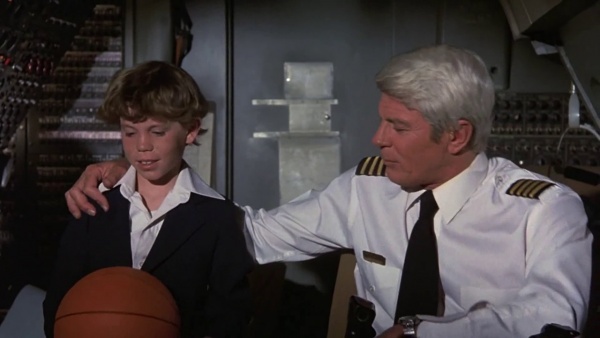General counsel

A handsome, silvered fifty-five year-old midwesterner with the bearing, and legal acumen, of a 747 pilot. If you encounter him in the lift he won’t have a clue who you are, even though you have worked in his department since 1998.
General counsel habitually float above the messy tedium of actual legal work. They owe their elevated position to a knack for side-stepping difficult decisions — something which, in a large organisation during peacetime, it is easy to do, especially one with well-functioning escalation circles. Being commander-in-chief of the armed forces is a cinch when the nation is not at war. Even in the torrid markets of the last decade, for the most part, the nation has not been at war.
But no-one likes to admit they simply tinned it. Thus, most general counsel are inclined to attribute their success to their own extraordinary judgment, commercial nous and deep client relationships rather than having had the fortune to be mucking about in a dinghy on the tidal flats when the mother of all rising tides came in, floating even the meagre barque they happened to be sitting in at the time.
This will not be how they remember it. General counsel will even, occasionally but without irony, accept industry awards for their talents. Those with an ounce of self-awareness will loudly attribute any such gongs to the relentless hard work and unique skill mix of their team, without which none of their legerdemain would have been possible. Then again, GCs and self-awareness go together like soup and naval signaling systems.
The main challenge for a modern-day general counsel is justifying his position at all. He likes to be seen as a visionary — an agent for change; a revolutioniser — whilst being nothing of the sort: one does not rise to the top of a profession designed to systematically beat creative thought out of its practitioners[1] by being a left-field kind of guy. A GC will therefore speak frequently of his grand strategic vision and consuming fascination with technological development. When she is not consenting to video-interviews for the firm’s intranet, a good GC will be advocating “resource fluidity”, commissioning detailed, multi-dimensional risk taxonomies, or extolling the potential benefits (and/or existential threat, depending on whom he is addressing) of cyber[2] or artificial intelligence to discharge the traditional role of a qualified legal advisor. Chatbots, you see, will shortly replace humans for cross-border marketing and regulatory advice.
The General Counsel will talk a great game, but will hand management of this task will to his ball-breaker of a COO, who in turn will saddle jobbing lawyers with the hard-yards of thinking up something meaningful way of filling out the boxes in his PowerPoint — jobbing lawyers who, you’d think, would be better spending their time actually managing risk, rather than inspecting their navels looking for it.
Trivia
The collective noun for a group of general counsel is an “adoration”.
Dramatis personae: CEO | CFO | Client | Employees: Divers · Excuse pre-loaders · Survivors · Contractors · The Muppet Show | Middle management: COO · Consultant · MBA | Controllers: Financial reporting | Risk | Credit | Operations | IT | Legal: GC · Inhouse counsel · Docs unit · Litigator · Tax lawyer · US attorney Lawyer | Front office: Trading | Structuring | Sales |
References
- ↑ The doctrine of precedent, anyone?
- ↑ Yes, he will call it that.